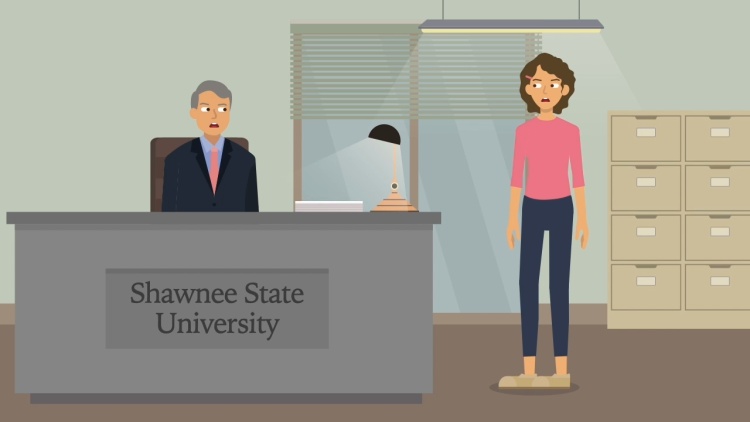Meriwether v. Hartop
United States Court of Appeals for the Sixth Circuit
992 F.3d 492 (2021)
- Written by Liz Nakamura, JD
Facts
Nicholas Meriwether (plaintiff) was a professor at Shawnee State University (SSU) (defendant), a public university in Ohio. Under SSU’s gender-identity policy, professors were required to refer to students by their preferred pronouns. One of Meriwether’s students, Doe, a biological male, asked to be referred to with female pronouns in accordance with her gender identity. Meriwether refused, stating that using pronouns that did not match a person’s biological sex violated his Christian beliefs. Doe raised objections with SSU’s administration, and Meriwether was disciplined. Meriwether sued SSU, arguing that SSU punishing Meriwether for refusing to use Doe’s preferred pronouns violated Meriwether’s First Amendment right to free speech. Specifically, Meriwether argued that his right to freely speak about matters of great public concern, such as the gender-identity debate, was protected by the academic-freedom exception, which was an exception to the general rule that public employees, like Meriwether, could be disciplined for statements made during the performance of their duties. SSU countered, arguing that (1) the academic-freedom exception applied only to ideological speech, such as lecturing, not ministerial speech, such as using a student’s correct name and pronouns, and (2) SSU’s interest in protecting transgender students from discrimination outweighed Meriwether’s free-speech interest. The district court dismissed Meriwether’s action. Meriweather appealed to the Sixth Circuit.
Rule of Law
Issue
Holding and Reasoning (Thapar, J.)
What to do next…
Here's why 907,000 law students have relied on our case briefs:
- Written by law professors and practitioners, not other law students. 47,100 briefs, keyed to 996 casebooks. Top-notch customer support.
- The right amount of information, includes the facts, issues, rule of law, holding and reasoning, and any concurrences and dissents.
- Access in your classes, works on your mobile and tablet. Massive library of related video lessons and high quality multiple-choice questions.
- Easy to use, uniform format for every case brief. Written in plain English, not in legalese. Our briefs summarize and simplify; they don’t just repeat the court’s language.





